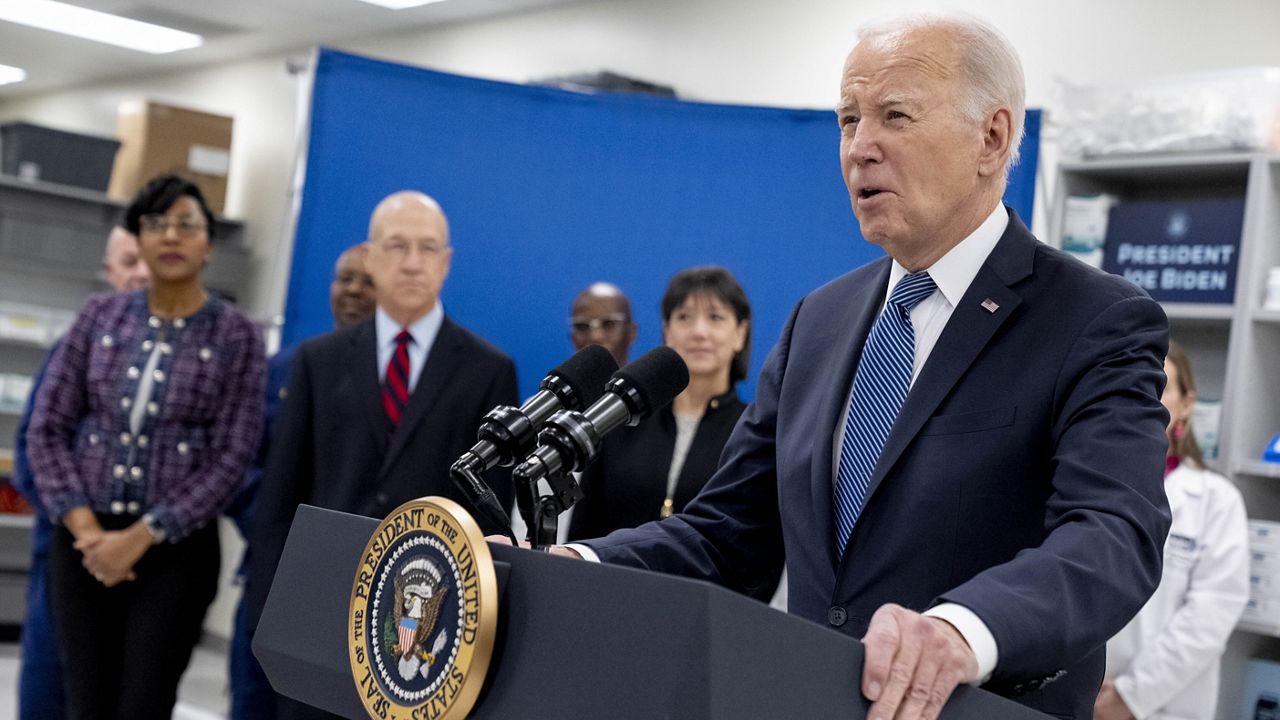Dozens of drug companies raised prices at a higher rate than inflation and will need to pay rebates to Medicare, the U.S. Department of Health and Human Services announced Thursday. The refunds are due under a provision of the Inflation Reduction Act, which penalizes companies for outpacing inflation with their pricing.
“In the year before we passed this legislation, drugmakers jacked up prices nearly four times faster than inflation went up – and they were already too high,” President Joe Biden said, speaking on his administration’s announcement at a lab at the National Institutes of Health in Bethesda, Maryland on Thursday. “Let's call this for what it is, it's a ripoff.”
Over the last three months of 2023, the Biden Administration said 48 Medicare Part B drugs raised prices faster than inflation. Another 16 medications did so every quarter this year. More than 750,000 Americans received at least one drug that outpaced inflation, according to HHS.
“Folks it's wrong,” the president declared, saying seniors have had to skip doses of medicine, cut pills in half and forego prescriptions entirely because they cannot afford drug prices.
The 48 new drugs on the HHS list will save seniors up to $700 per dose for expensive cancer drugs, the department estimates.
White House Domestic Policy Adviser Neera Tanden cited the drug for an endocrine condition that costs almost $3,600 per dose, requiring patients to pay 20%, or $720 out of pocket. Under the new IRA rule, the inflation-adjusted co-pay would be reduced to $311 per dose, she said.
“For too long, Americans have paid more for prescription drugs than any advanced nation on earth” Biden said.
The National Institutes of Health has the largest drug research budget in the world. Funded with taxpayer dollars, the NIH spends billions of dollars on research to help discover and develop new prescription drugs. The NIH budget for the 2023 fiscal year is $49 billion, according to the Congressional Research Service.
Seven of the 10 drugs the Biden administration has targeted for Medicare price negotiations this year received at least one form of federal support that helped bring the drug to market, Tanden said.
“We finally after all these years beat pharma when I signed the inflation reduction act to get seniors and taxpayers a better deal,” Biden declared on Thursday.
On Thursday, HHS also released new data on the 10 drugs it had selected for the Medicare price negotiations. Medicare spending on the drugs, which represent more than half of the health insurance program's enrollees’ total Part D out-of-pocket spending, more than doubled between 2018 and 2022. The rate was three times faster than all Part D drugs over the same timeframe.
HHS' Administration for Strategic Preparedness and Response announced Thursday it is making fair pricing a standard part of its contract negotiations for medical products that the government has helped to develop or has purchased.
“No longer will U.S. consumers pay an amount that is significantly higher than people in Toronto or London or Paris,” Tanden said.
HHS has included fair pricing language in three recent agreements with the companies making the new COVID-19 vaccines, a senior administration official said.
Spectrum News' Maddie Gannon contributed to this report



